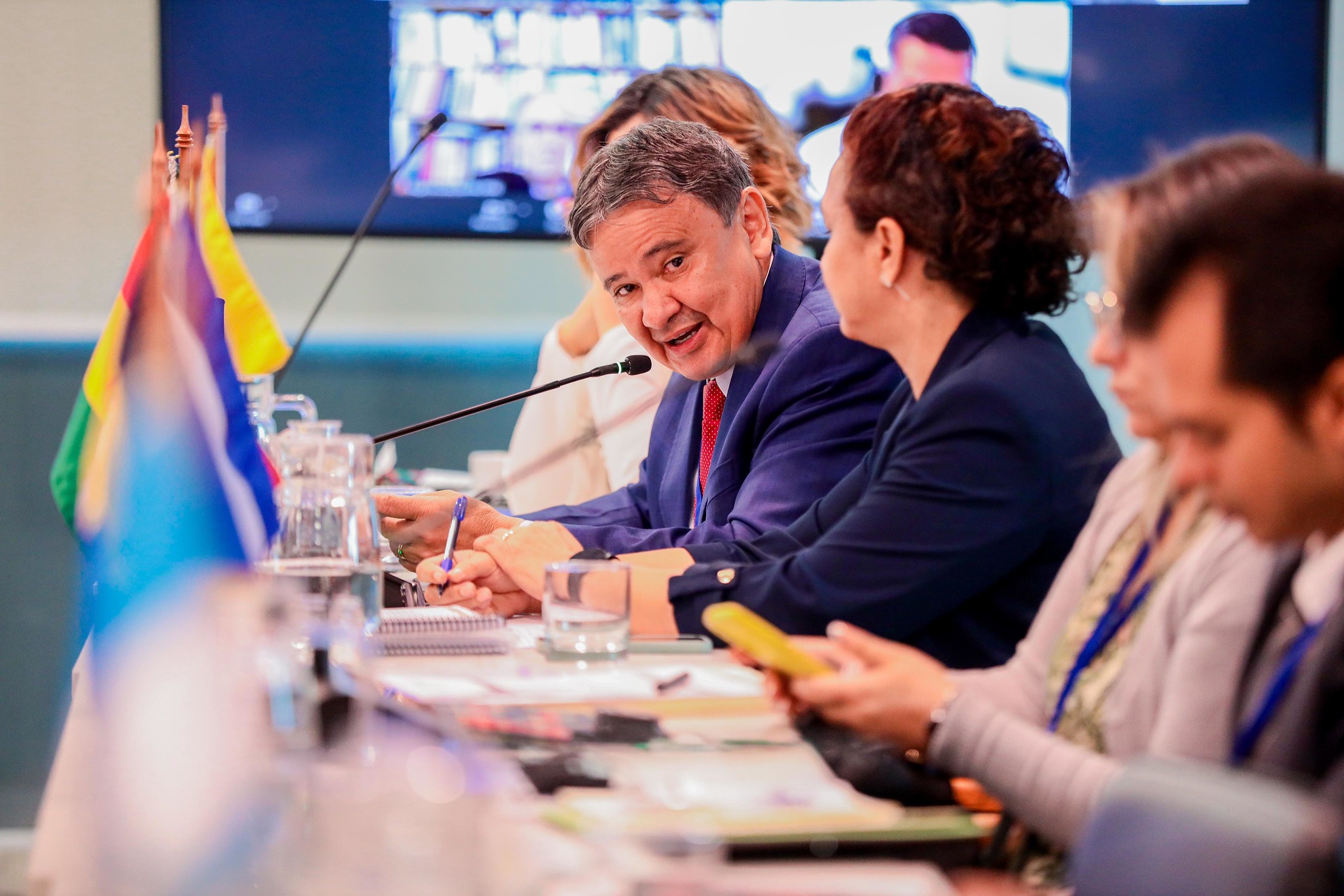The head of Development and Social Assistance, Family, and Hunger Combat in Brazil mentioned the Sustainable School Feeding Network as one of the actions contributing to the fight against hunger.
Brazil’s Minister of Development and Social Assistance, Family, and Hunger Combat, Wellington Dias, participated on January 16 in a high-level event of the Community of Latin American and Caribbean States (CELAC), with over 20 Agriculture ministers and authorities from various countries. The hybrid event took place at the headquarters of the Food and Agriculture Organization of the United Nations (FAO) in Santiago, Chile.
During his participation, Wellington Dias highlighted several actions carried out by the Government of President Lula focusing on eradicating hunger, such as increasing the budget for the National School Feeding Programme (PNAE), and mentioned the Sustainable School Feeding Network (RAES).

Dias mentioned that successful food security programmes were resumed, and new strategies were created to ensure the right to food, such as the Brazil Without Hunger Plan, which aims to confront hunger with adequate nutrition, reduce inequalities, and care for the environment. The minister also emphasized the importance of intersectoral dialogue and mentioned the extensive collaboration between ministries to work together to improve food security indicators for Brazilians and reduce poverty.
The meeting at the FAO’s regional headquarters aimed to discuss the update of the CELAC’s 2030 Food and Nutritional Security and Hunger Eradication Plan. The plan defines four pillars: the creation of legal and institutional frameworks, as well as macroeconomic policies favorable to food and nutritional security; sustainable production and access to food; healthy diets; and the transition to resilient agri-food systems, considering the environmental and climate crisis.
The financial pillar includes resources from funds and international donors, as well as new mechanisms to assist countries with fewer resources. The knowledge base involves the dissemination and sharing of best practices and experiences among countries. The national pillar is the commitment of each state to adopt effective programmes and technologies to combat poverty and hunger.
As part of the technical work supporting the minister’s participation, Saulo Ceolin from the General Coordination of Food and Nutritional Security of the Brazilian Ministry of Foreign Affairs, Paola Barbieri, project analyst from the Brazilian Cooperation Agency (ABC/MRE), and Najla Veloso, regional coordinator of the Sustainable School Feeding Regional Agenda project in Latin America and the Caribbean (FAO), developed by International Cooperation Brazil-FAO in school feeding, attended meetings where the main strategies and methodologies to be discussed with ministers in this high-level agenda were debated.
During Wellington Dias’ trip to Chile, the minister also presented the proposal to create the Global Alliance to Combat Hunger and Poverty to a series of authorities with the aim of involving and mobilizing a large number of countries and international institutions as signatories to the pact, coordinated by the MDS and to be launched in Brazil during the country’s presidency in the G20, a group that brings together the world’s largest economies.






